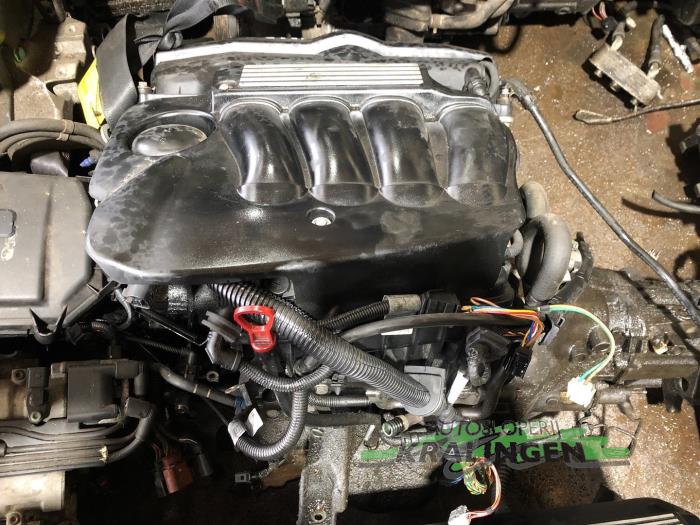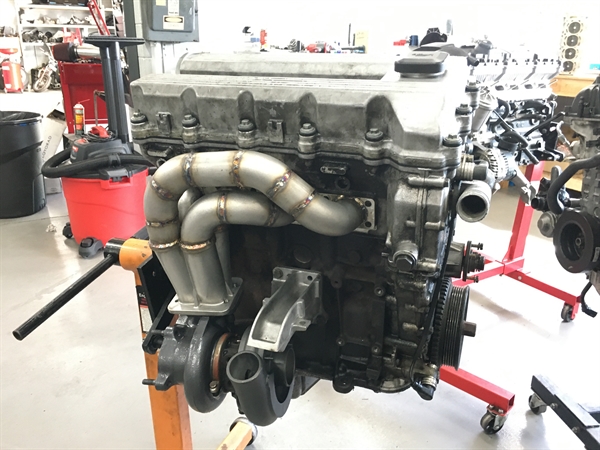Vital Factors To Consider for Picking the Finest Engine for Your Demands
In the world of selecting the ideal engine to meet your requirements, several important factors demand careful factor to consider to make sure ideal efficiency and performance. From the nuanced equilibrium between power and performance to the often-overlooked facets of maintenance and solution needs, each facet plays a critical function in determining one of the most appropriate engine for your particular requirements. As the intricacy of engine technologies remains to advance, discerning the most suitable alternative necessitates a deep understanding of the interaction in between different factors to consider. By discovering the elaborate web of factors that underpin this decision-making process, a more clear course emerges in the direction of selecting an engine that not only meets yet exceeds your assumptions.
Power and Efficiency
When examining engines for optimum performance, it is vital to focus on both power output and performance. Efficiency refers to just how well the engine converts gas into functional energy. By carefully reviewing both power and effectiveness, you can select an engine that provides optimum performance and satisfies your needs successfully.
Gas Effectiveness and Economy
In the realm of engine selection, the factor to consider of gas efficiency and economic climate holds critical relevance. Gas efficiency describes the engine's capacity to convert fuel right into energy with very little waste, straight influencing operating expense and environmental sustainability. bmw 318ti. When choosing an engine, examining its gas economic climate is important to establish long-lasting savings and ecological influence. Engines with greater gas performance not only lower gas expenses yet additionally lower carbon emissions, adding to a greener procedure.

Compatibility and Application
Considering the fuel effectiveness and economy of an engine, the following important element to address is its compatibility and application within details operational contexts. Compatibility refers to how well the engine incorporates with the general system or tools it powers.
Various engines are developed for certain functions, whether it be commercial equipment, aquatic vessels, automobiles, or power generators. Recognizing the desired application enables for the option of an engine that can provide the required power outcome, torque, and operational characteristics.
Maintenance and Solution Needs
Maintenance and solution needs play an essential function in making sure the longevity and optimal performance of an engine. Regular maintenance is necessary to avoid failures, prolong the life-span of the engine, and preserve its performance. When picking an engine, it is necessary to consider the manufacturer's suggested upkeep routine and the availability of service facilities or qualified technicians.
Variables go right here such as the regularity of oil modifications, filter substitutes, and general examinations can significantly influence the engine's efficiency. Some engines may call for even more regular maintenance based upon their style and usage, while others might have longer periods in between maintenance checks. It is essential to stick to these solution demands to avoid costly repairs and unexpected downtime.

Price and Budget Plan Factors To Consider
Budget plan restrictions frequently play a significant function in the decision-making procedure when selecting an engine for a particular application. When thinking about the price and spending plan effects of selecting an engine, it is important to examine not just the preliminary acquisition price yet likewise the lasting expenses related to maintenance, fuel intake, and potential upgrades or important source repair work. It is essential to strike an equilibrium between the ahead of time expense of the engine and its overall lifecycle expenses to make sure that the selected engine continues to be economically sustainable throughout its operational lifespan.
Variables such as fuel performance, resilience, and dependability can straight affect the total price of ownership of an engine. While a more costly engine may have higher ahead of time prices, it might potentially lead to lower upkeep and fuel expenses gradually, hence offering much better worth over time. Furthermore, thinking about the accessibility and price of extra components, along with the convenience of upkeep and solution, can assist avoid unexpected financial stress in the future. By carefully evaluating these cost and spending plan factors to consider, you can make an informed decision that aligns with your economic restraints and functional requirements.
Final Thought

Gas performance refers to the engine's capacity to convert fuel into energy with minimal waste, straight impacting operating expenses and environmental sustainability.Factors affecting fuel effectiveness include engine design, combustion effectiveness, and total efficiency optimization. In addition, choosing the suitable gas type and quality as advised by the engine producer can even more improve effectiveness and prolong engine life expectancy.
Engines with excellent use functions and easily offered components can reduce upkeep prices and lessen the time the engine is out of procedure - bmw 318ti. It is critical to strike an equilibrium between the upfront cost of the engine and its overall lifecycle content costs to make certain that the chosen engine stays monetarily sustainable throughout its functional life-span